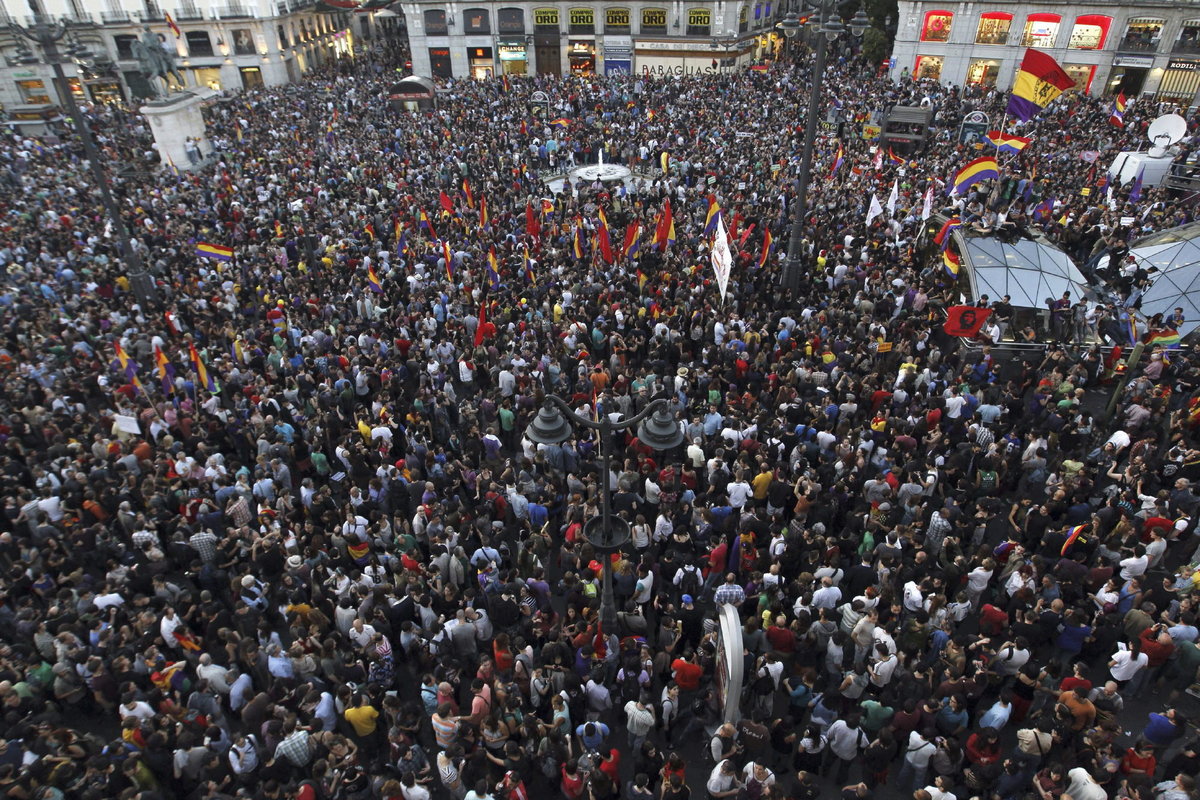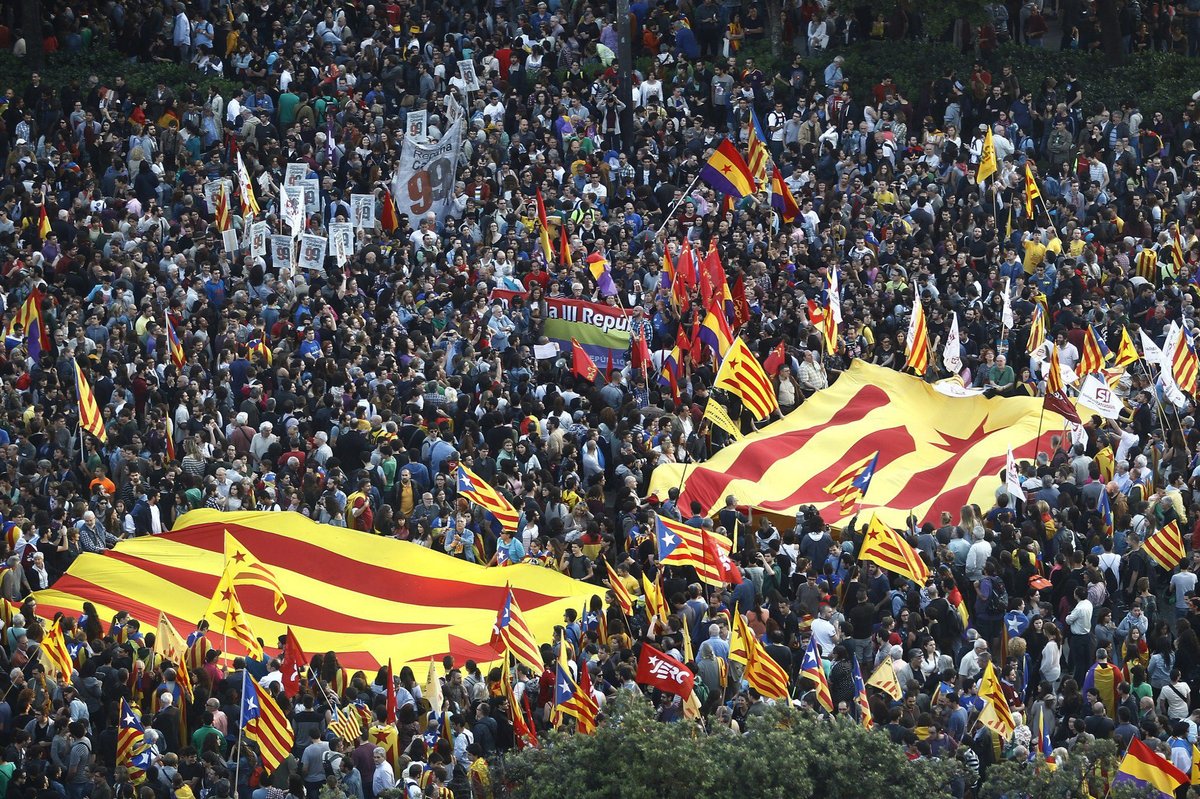
“Riot police were on standby as tens of thousands took to the streets in Madrid, Barcelona and other cities across Spain on Monday to demand a vote on whether to rid Spain of its royal family,” Al Jazeera reported on June 3.
Al Jazeera said: “The protests came after Spain's King Juan Carlos, who led the country's transition from dictatorship to democracy but faced scandals during the nation's near financial meltdown, announced on Monday he would abdicate in favour of his son Felipe ...”
RT.com said: “The biggest rally, held in Madrid's Puerta del Sol square, united anti-monarchist activists under the 'Monarchy No Thanks' campaign.
“Thousands of people carrying Republican flags flooded the capital hours after the 76-year-old monarch announced his resignation ... Spain's 15-M social movement launched the proposal for a protest against the monarchy and the declaration of a republic.”

Puerta del Sol square in Madrid.<
The protesters demanded a referendum on whether or not to keep the monarchy or become a republic.
RT.com said protesters, who said there were more than 20,000 police deployed on the streets of Madrid to deal with the demonstration, chanted: "Spain, tomorrow, will be Republican.”
The call for protests spread across social networks within minutes of the king's announcement,. Demonstrations hit more than 50 cities.
The United Left, whose electoral grouping Plural Left nearly tripled its vote to 10% in the recent European elections, is strongly backing calling for a referendum. United Left federal coordinator Cayo Lara called for a vote so “the people can decide if they want a monarchy or a republic,”which he said was a choice between “monarchy or democracy”.
He said it was “inconceivable that in the 21st century we are still talking about the rights of blood”.
This sentiment was backed by Podmos, a new left party seen by many as the group closest to the aims and aspirations of the 15-M movement. Podemos surprised observors with a strong showing the European polls, winning 8% in its first outing.
Calling for a referendum, Podemos leader Pablo Iglesias said: “This abdication will accelerate the decomposition of the political regime of 1978.”
Iglesias told El Pais: “If the government believes that [Prince] Felipe has the confidence of the people, it should be put to the test at the polls.”
The president of the Basque Country's regional parliament, Inigo Urkullu, said king's abdication “opens the door to the possibility of resolving the Basque question”, in reference to the region’s long-standing quest for independence from Spain.
Facebook group Basque Info said on June 3: “Thousands of people took to the streets in the southern Basque Country last evening in favor of an independent Basque republic and many others for a Spanish republic after the Spanish king’s abdication. Some people joined both protests.”

Protest in Barcelona, the capital of Catalonia where, like the Basque Country, there is a strong movement for self-determination. The demonstration featured slogans in support of a Spanish republic as well as independence.
Support for the protests has come from the Party of the European Left, which groups man left parties from across the continent. The United Left is part of the PEL, as is Greece's Coalition of the Radical Left (SYRIZA), which topped that nation's vote in the European poll.
In a statement entitled “King abdicated but the regime needs to change”, PEL said: “Given the crisis in the country and the results of the political parties that support the monarchy at the last European elections, it is not crowned heads but the type of regime that must change.
“The Party of the European Left support the efforts of the Communist Party of Spain, of the United Left and EUIA [United an Alternative Left, a Catalonian-based United Left affiliate] who legitimately claim a referendum to allow the Spanish people to choose their future.
“Almost forty years after the death of Franco, the Spanish should be allowed to choose between the current system, oligarchic and dominated by bipartism, or a constituent process for the advent of a new Republic.”
